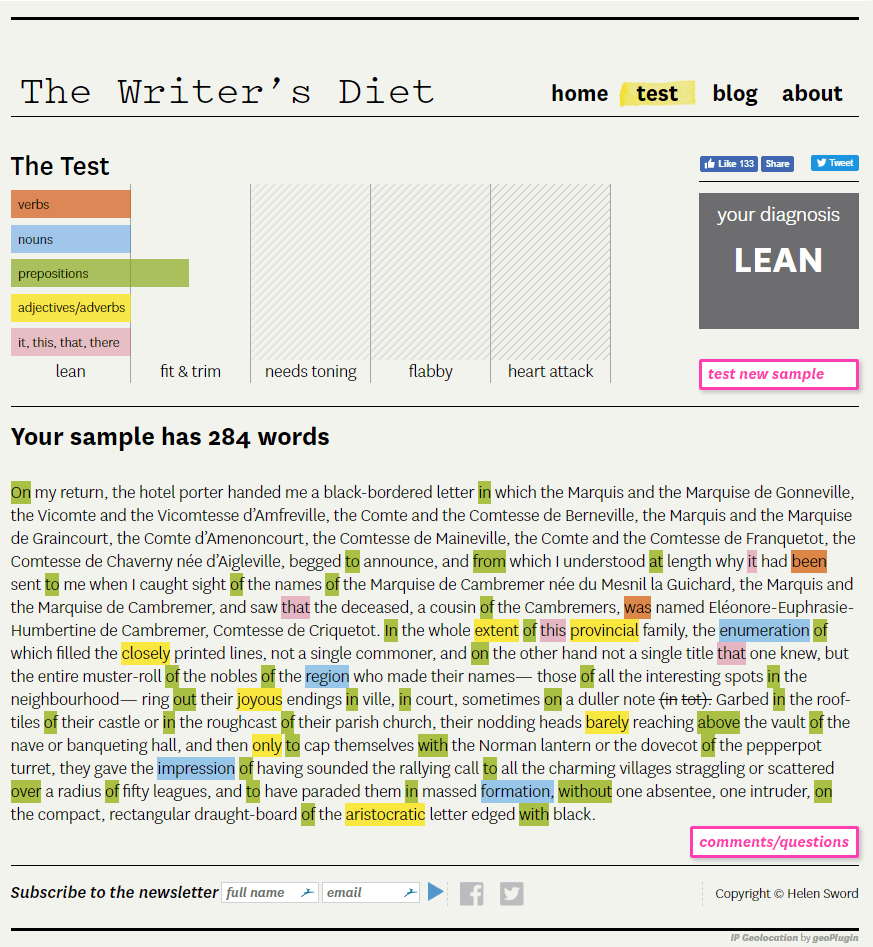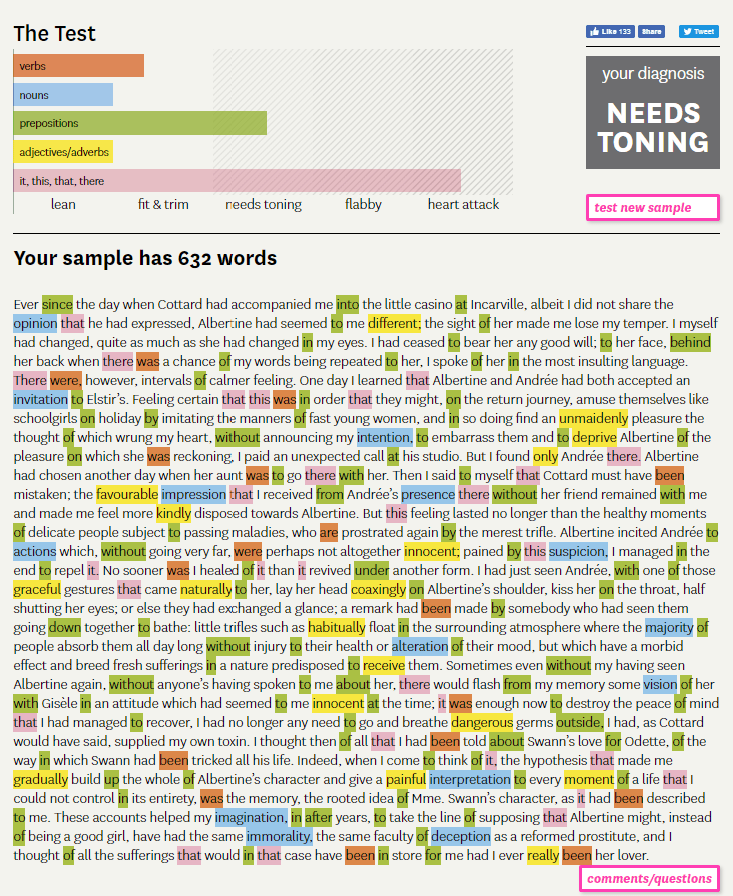The Writer’s Diet reads Marcel Proust
Marcel Proust’s writing is renowned for its wordiness and yet,according to The Writer’s Diet, his prose can also be verbally “lean” (as seen in this excerpt from Remembrance of Things Past: Cities of the Plain):
Even the prepositions that are often needed to bind together the many parts of Proust’s long, windy sentences, are under control here.
Of course, the “fitness” level of Proust’s writing may vary from passage to passage:
Yet, what seems to remain in check at all times is Proust’s use of nouns and verbs. There are hardly any abstract nouns and only a small numebr of weaker “be” verbs (which is impressive, given the psychological and philosophical preoccupations of his work).
Does that make Remembrance of Things Past (this novel in seven volumes which officially has been recognized as the longest in the world) “easy” to read? Of course, not. Except, perhaps, for those who appreciate the stream-of-consciousness style and the “slow” reading it requires.
And, as for the accuracy of The Writer’s Diet, it does still occasionally mistake nouns/verbs for adjectives/adverbs: for example “extent” (in the first sample); “incident” and “scent” (in the second one); and “moment” and “deprive” (in the last one).
The Writer’s Diet version available in 2019 was used in this experiment.
Text used in the experiment: Marcel Proust’s Remembrance of Things Past: Cities of the Plain (À la Recherche du temps perdu: Sodom et Gomorrhe), translated from the French by C. K. Scott Moncrieff. Originally published in English in 1927. Published as web edition in 2014 by eBooks@Adelaide.


